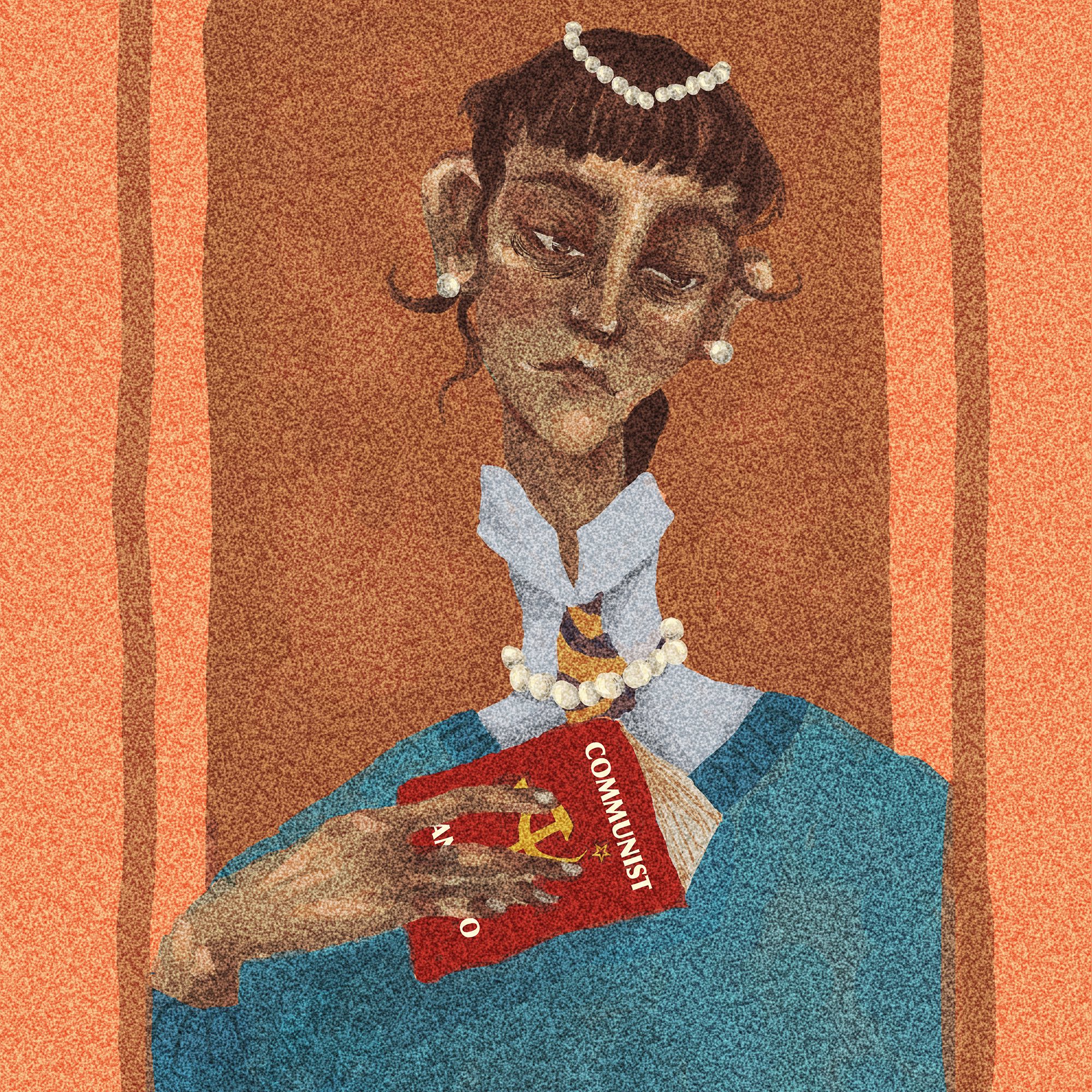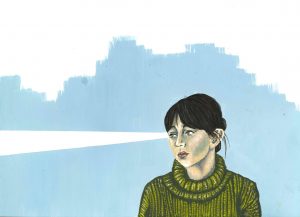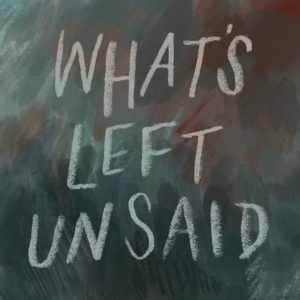Words by Eliza Browning. Art by Kanengo Diallo.

Oscar Wilde and Sally Rooney: Parodying the Political
by Eliza Browning | July 27, 2022
“Art is individualism, and individualism is a disturbing and disintegrating force. There lies its immense value,” argued Oscar Wilde in his 1891 essay, The Soul of the Man Under Socialism, which advocated a trailblazing vision of social and artistic equality. His libertarian, socialist philosophy argued for the establishment of a society which frees its citizens from degrading wage labour, redistributing wealth to enable commitment to individual creation. However, Wilde’s ideals bore little relevance to the everyday lives of underpaid labourers or anyone outside his upper-class milieu. His advocacy for aestheticism didn’t advance radical political change. Rather, his embrace of materialism threatened to undermine his status as a radical.
Today, this act of aestheticizing the political is everywhere. This can be seen in commercials depicting Black Lives Matter marches, corporations who display rainbow merchandise during Pride Month, or colourful Instagram infographics neatly breaking down the destruction of abortion rights in America. Glamourised versions of politics have also begun to infiltrate contemporary literature. Several of the most talked-about books of the past few years, all by the prominent millennial novelist, Sally Rooney, perpetuate this fallacy of invoking global politics while glossing over their real-life consequences in favour of sparkling descriptions of curated interiors and Italian villas. Her novels Conversations with Friends, Normal People, and Beautiful World, Where Are You all advance Wilde’s mission of aestheticizing the political while failing to advocate for structural change.
Notably, Rooney’s public commitment to left-wing ideals has detracted from widespread criticism of her novels’ political failings. A self-described Marxist to Wilde’s undefined socialist, she presents modern issues in mentions, creating the illusion of engaging with political discourse while foregrounding conventional romantic plotlines. This dynamic only reinforces the aestheticization of political issues, undermining the radical beliefs the characters claim to hold. This offers little possibility for the queer or feminist liberation Rooney supposedly advocates for.
Rooney does, however, clearly signpost the identity politics of her characters early in her novels. “I’m gay,” proclaims Bobbi, the best friend of protagonist Frances, early in Conversations with Friends, “And Frances is a communist.” Unfortunately, these identities are never fully developed – or even mentioned, except in passing. Although Frances and Bobbi dated during their school days, this former romantic dynamic is glossed over after being initially established. Instead, she foregrounds explicit descriptions of heterosexual sex. Rooney fails her queer characters by stating their sexual orientation without ever fleshing out same-sex relationships. Queer relationships are almost entirely absent from her novels, perhaps suggesting that only heterosexual relationships have the potential to be glamourised for widespread audience appeal. Though Bobbi was Frances’s first and only relationship prior to her romance with Nick, the first and only other person she had sex with, their former romantic dynamic has no impact on the depiction of their friendship.
Instead, Rooney devotes the plot to Frances’s relationship with Nick, notably erasing any enactment of Frances’s bisexuality despite it being a key component of her relationship with Bobbi. Similarly, Alice and Felix of Beautiful World, Where Are You both identify as bisexual, but this never manifests in their relationship apart from a brief discussion and a throwaway scene where Felix receives a dating app message from a man. The politics of identifying as queer in contemporary Ireland, both within Dublin’s urban millennial milieu and the rural village where Alice and Felix live, is mentioned only to then be ignored. Rooney is willing to raise provocative questions about the commodified nature of love, but she is unwilling to actually depict them in queer relationships. Her failure to portray gay romance indicates that she may want her novel’s romantic plotlines to remain easily digestible and marketable to a heterosexual audience. One can hardly imagine Conversations with Friends being as wildly successful if it has focused on Frances and Bobbi’s relationship, suggesting that queer revolution is far from the horizons of her characters.
For all its political virtue signalling, the novel’s politics are far from Marxist. This would be excusable if Rooney’s characters didn’t describe themselves as overtly political. Early in the novel, Frances and Bobbi discuss “what Bobbi disparagingly called ‘pay gap feminism,’” but the conversation itself goes unrecorded – unfortunately so, as it might illuminate the depth of their hypocrisy toward labour. As Lauren Oyler observes in Bookforum, the financial problems of Rooney’s characters are “solved, or at least eased, by convenient contrivances.” Bobbi doesn’t need to work because of her wealthy parents, and Frances rejects the ideological concept of having a job. She lives rent-free in her uncle’s apartment, works an unpaid internship, and when her father forgets to pay her allowance and she appears to hover on the verge of financial instability, her wealthy older lover swoops in to bail her out.
For a supposed communist, Frances’s fictional politics are superficial and detached from the reality of labour under capitalism. “I hadn’t been kidding about not wanting a job,” Frances reflects. “I didn’t want one. I had no plans as to my future financial sustainability: I never wanted to earn money for doing anything.” She fails to recognize that her communist beliefs are enabled by the fact that she has never had to earn her own living. When her fellow intern tells her, “This is how privilege gets perpetuated… Rich assholes like us taking unpaid internships and getting jobs off the back of them,” Frances replies, “I’m never going to get a job.” The necessity of working to survive never seems to occur to her. Rather, her worst fear is that Bobbi “would come into the sandwich shop where I worked and see that I had a job.”
Rooney describes her second novel Normal People as a “Marxist love story.” The reality, however, is disappointing. Normal People is politically complacent at best, despite depicting a tormented cross-class relationship between wealthy Marianne and her housekeeper’s son Connell. Connell and Marianne read The Communist Manifesto and attend a protest against Israel during the 2014 Gaza War, but that is about as far as their political activism extends. When Connell tells Marianne that he was late to coffee because there was a protest about “the household tax or something,” Marianne flippantly replies, “Well, best of luck to them. May the revolution be swift and brutal.” Later, Marianne, who has never held a job because of her family’s wealth, asks her friend Joanna “if she finds it strange, to be paid for her hours at work – to exchange, in other words, blocks of her extremely limited time on this earth for the human invention known as money.” It’s the kind of question only an extremely privileged character could unself-consciously ask – one that clashes with Rooney’s own socioeconomic worldview. While other people must work to survive, Marianne is free to contemplate the alienating social construct of “money” while roaming around her family’s villa in Italy.
Rooney’s satirical intent, however, may not at first be obvious in favour of her descriptions of lush landscapes, expensive interiors, and lavish lifestyles. While Rooney insists upon the mantra that money does not equal happiness, the backdrops of these scenes are still gilded with wealth, making for leisurely if not politically provocative reading. Like Wilde’s own superficial advocacy for socialism, it is easy to miss the political message in favour of prodigious displays of wealth.
The failure of Rooney’s personal Marxist politics in novels quickly becomes frustrating when compared to her public political stance. “Everyone’s on it now,” Eileen says in Beautiful World, Where Are You. “When I first started going around talking about Marxism, people laughed at me. Now it’s everyone’s thing. And to all these new people trying to make communism cool, I would just like to say, welcome aboard, comrades.” One could be forgiven for surmising that Rooney herself appears to have jumped on the Marxism trend, using the veneer of literature to signpost her characters’ political ideologies without ever fully developing the realities of survival under capitalism.
“I agree it seems vulgar, decadent, even epistemically violent, to invest energy in the trivialities of sex and friendship when human civilization is facing collapse,” Eileen writes to Alice in Beautiful World, Where Are You, yet the rest of the novel proceeds to do just that by miring the reader in her relationship problems. The paradox of Rooney’s politics is exposed in her desire to write a Marxist novel without a real depiction of class struggle that could alienate her mainstream audience. “I’m very sceptical of the way in which books are marketed as commodities,” she has admitted, “like accessories that people can fill their homes with, like beautiful items you can fill your shelves with and therefore become a sort of book person.” The explosive popularity of the Normal People television series, along with the commodification of her books’ colourful covers and the wide variety of Sally Rooney tote bags, have only fulfilled Rooney’s fears.
Like it or not, her books have themselves become cultural commodities that undermine any political undertones they might contain. Even a novel overflowing with communist invective, Rooney suggests, would be politically stymied in contemporary literary culture, destroying any of its radicalism – an adept summary of an author whose novels have appeared on GQ’s ‘Failsafe Gifts for Her’ Christmas list. Like Wilde, her writing attempts to aestheticize the political, but her embrace of wealth only undermines her political posturing. While Rooney’s novels recognise the political structures of our society, they only perpetuate them instead of challenging them. When Connell attends a literary reading at university, he levels a criticism that “[l]iterature, in the way it appeared at these public readings, had no potential as a form of resistance to anything.” Yet in her novels, Rooney falls prey to exactly this.∎




